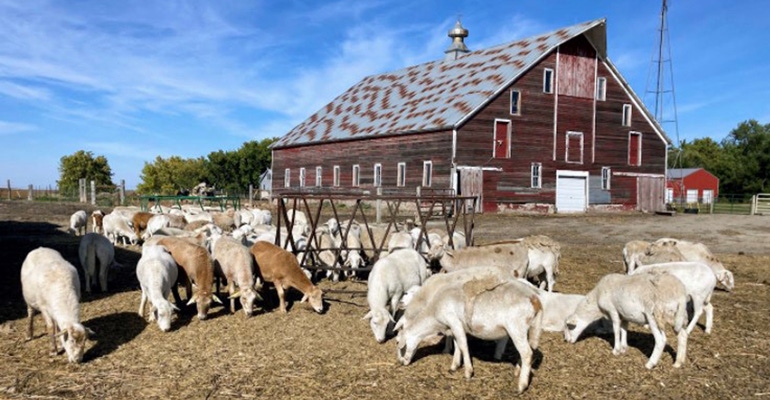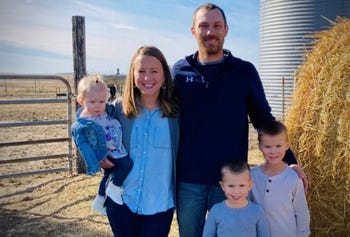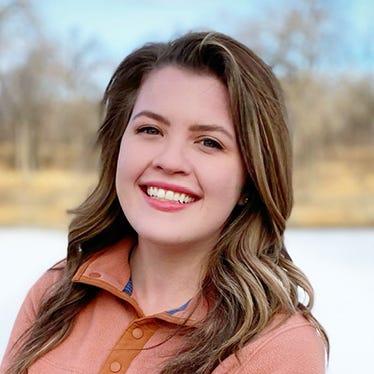
After growing up on his family farm in Edmore, N.D., Lance Myrvik went off to college in the Twin Cities of Minnesota and wasn’t planning on returning home to the farm.
“When I left for college in 2004, I figured I’d get a four-year degree and do whatever I wanted, and my degree would pay for itself,” Myrvik says.
Myrvik stayed for nearly 15 years in the Twin Cities area, where he met his wife, Kelly. But then plans changed when he and his wife returned to his family’s farm in Edmore.
“We’d had one child and knew we wanted to have more,” he says. “We didn’t live downtown at all, but we knew we wanted to raise our children in more of a rural setting than we were in.”
After the trip to Edmore, Myrvik says it was his wife’s idea to move there. “It was a conscious decision of where and how we wanted to raise our kids,” he says. They now have three children between 1 and 5 years old.
Running their flock
With the first decision made to move back to the farm, the next was choosing the type of livestock to raise. They chose registered Katahdin sheep.
 RAISING FARM KIDS: Lance and Kelly Myrvik decided to move home to Lance’s family farmstead from the twin cities, to give their growing family a rural upbringing.
RAISING FARM KIDS: Lance and Kelly Myrvik decided to move home to Lance’s family farmstead from the twin cities, to give their growing family a rural upbringing.

“We had a neighbor that raised registered Katahdin just 20 miles up the road, he was the one I initially talked with about the breed,” Myrvik says.
While he had no official training in sheep production, Myrvik — a history major — looked to his neighbor, online resources, his own experiences and North Dakota State University Extension specialists to manage his first flock.
“What I’ve learned has either come firsthand, sometimes the hard way, or my neighbor is always good for a phone call, even if it’s 2 in the morning.”
Myrvik says now after a few years, he’s gained more knowledge as a herdsman to be better equipped for what happens in his flock.
They started off their herd in 2019 with 21 sheep, focusing on genetic and meat potential. “Our operation is two-prong,” Myrvik says. “All males get castrated and sold for the butcher, and this year we actually sold every wether that we had private treaty.”
Lambs off their farm are fed out and ready to head to processing around late July and taken to individuals around the region. “We’ve had really good response to individuals and pushed out our marketing to grow awareness to our offerings,” he says.
In addition to the meat animals, Myrvik says they have begun offering breeding lambs from their herd to other producers. “I listed we had lambs for sale with the Katahdin Association, and we sold to a guy who made the drive all the way from Illinois to get breeding stock from us.”
He says that they try to keep around 30 ewes for their own flock each spring, to continue to build the breeding side of their operation.
Focused on expansion
With a thriving lamb and meat business, the Myrviks are looking to expand their operation to restaurant distribution. “We have a few local restaurants that are interested,” Myrvik says.
Most restaurants that purchase food from a large restaurant distributor can just pick up the phone and order as needed, but there are additional steps to working with a local producer. “There is a lot more paperwork to be done with this route, and planning ahead for demand, so we’re working on that part up now,” he says.
What’s most important to the Myrviks, they say, is their ability to raise high-quality and healthy animals for their community while also raising their children as the fifth generation on their farm.
About the Author(s)
You May Also Like






